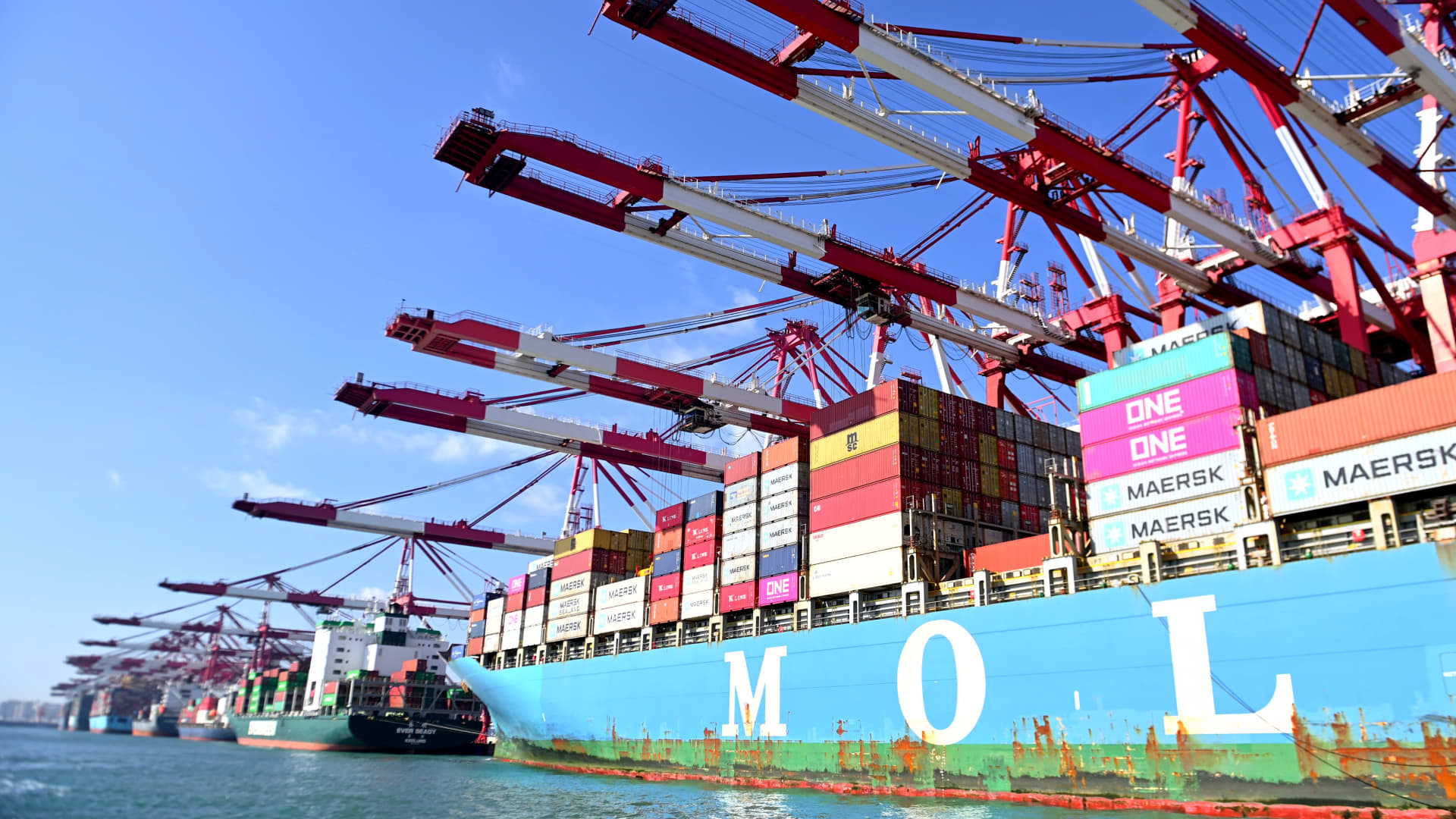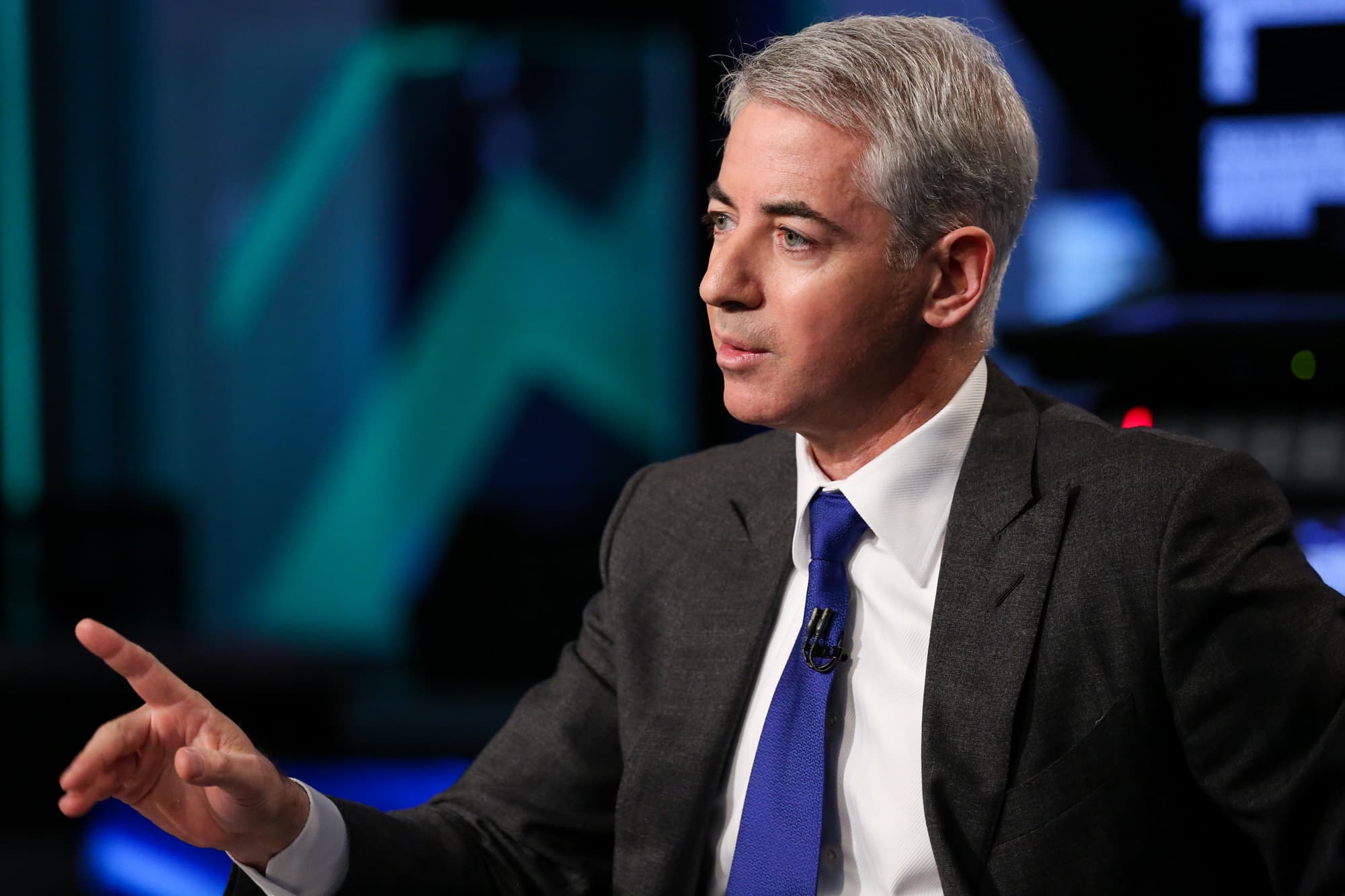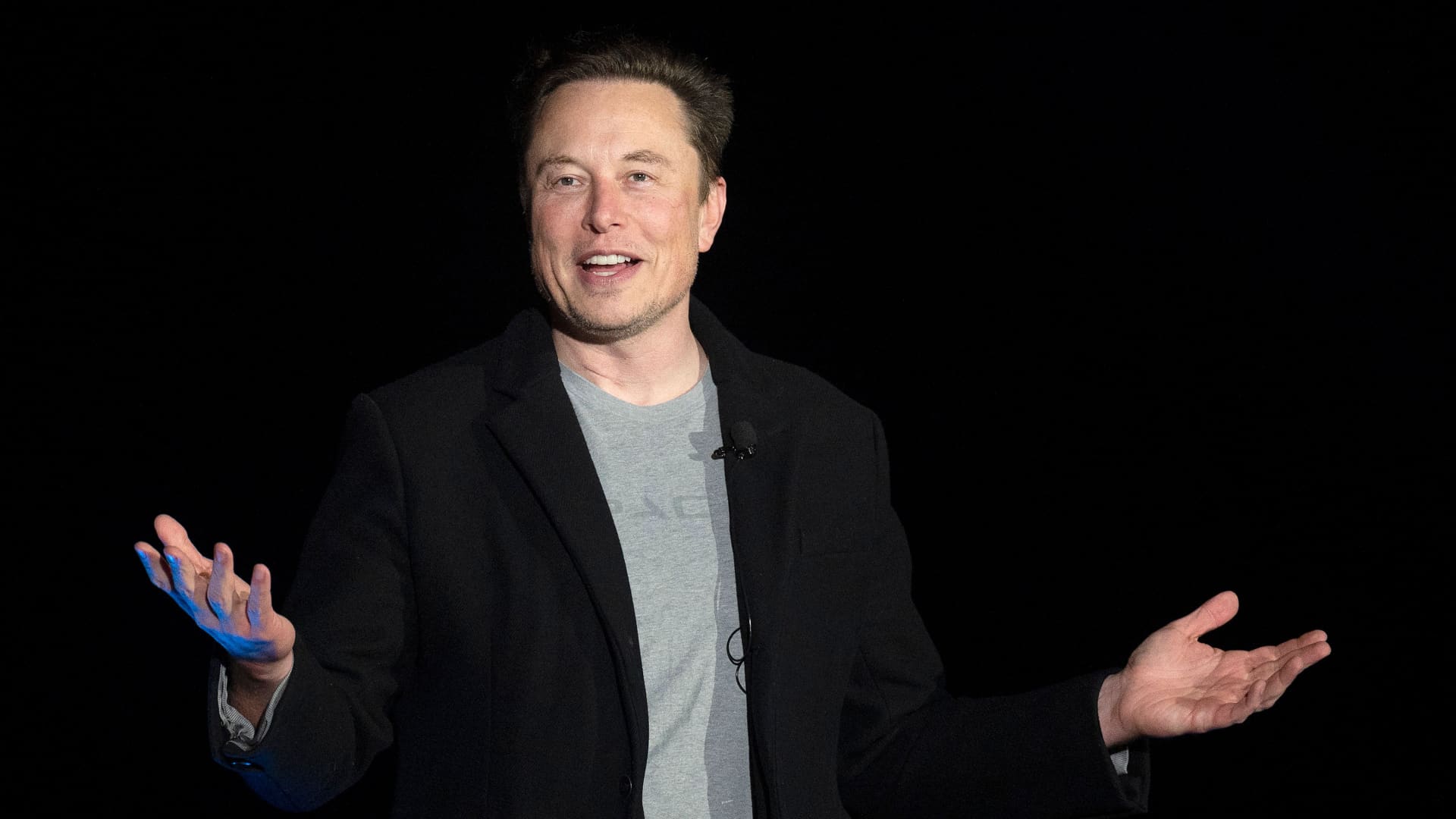How the Russia-Ukraine war could hit China's trade
China's trade surplus could narrow to $238 billion this year – about 35% of the historic $676 billion attained last year, according to ANZ Research estimates.

Cargo ships load and unload containers at Qingdao Port's foreign trade container terminal in Qingdao, East China's Shandong Province, Nov 11, 2021.
Yu Fangping | Costfoto | Barcroft Media | Getty Images
China's trade surplus surged to historic highs during the pandemic as people consumed more goods than before, but analysts say the Russia-Ukraine war is set to change that.
The Asian manufacturing giant's trade surplus could narrow to $238 billion this year – about 35% of the historic $676 billion attained last year, according to estimates from ANZ Research.
"The war in Ukraine will soon start to weigh on net trade due to softer foreign demand and a higher import bill," said Julian Evans-Pritchard, senior China economist at research firm Capital Economics.
Growth shocks in China's major trading partners
The war could cause a broader slowdown in the global economy, especially in Europe, said ANZ Research senior China economist Betty Wang.
The European Union is China's second-largest trading partner, accounting for about 15% of the Asian country's total exports. Exports to the EU jumped further last year, making up 16% of China's 30% exports growth, according to ANZ Research.
"Statistically, the EU's economic growth has a high correlation with China's total export growth," said Wang, adding that for every 1 percentage point drop in the EU's GDP growth, China's total export growth will fall by 0.3 percentage points.
The big chip disruption, nickel fears
The shortage of semiconductors was already severe, but Russia's war in Ukraine is set to further disrupt supply chains.
ANZ Research said the conflict has worsened the global shortage of chips, on which China is heavily reliant for its electronic exports. Exports of electronic items contributed 17.1 percentage points to China's 30% export growth in 2021, the research firm said.
Analysts noted both Ukraine and Russia play important roles in global semiconductor supply chains.
Ukraine supplies purified rare gases such as neon and krypton, both essential in making semiconductors, according to ANZ. It also produces precious metals used to make chips, smartphones and electric vehicles.
China is among emerging markets vulnerable to commodity shortages caused by the war, according to a TS Lombard report published Monday. In particular, China is sensitive to disruptions in nickel supplies, the report said.
Last week, the London Metal Exchange halted trading of nickel after prices more than doubled following supply disruption fears due to the war. Russia is the world's third-largest producer of nickel.
Nickel is a key raw material in electric vehicle batteries and China is the largest EV producer globally. The number of EVs it exports to other countries jumped 2.6 times to nearly 500,000 last year – more than any other country in the world, Nikkei reported last week.
China-made EVs accounted for about 44% of electric vehicles manufactured from 2010 to 2020, a study found.
Elevated energy prices
The Ukraine crisis has also led to volatile oil prices, which soared to record highs last week before tumbling more than 20%. That's set to hit China, the world's largest oil importer.
Read more about China from CNBC Pro
China imported $423 billion worth of energy products last year, said Singapore bank DBS economists Nathan Chow and Samuel Tse. Of that, $253 billion was crude oil.
The economists wrote that China's nominal GDP would be cut by 0.8% if average oil prices jumped from $71 per barrel to $110 this year.
Oil prices have been volatile, dropping below $100 per barrel earlier this week after spiking to highs of over $130 last week. On Thursday, they topped $100 again, well above the $70 to $80 level crude was trading at the beginning of the year.
China, however, could find some relief if it leaned on Russia.
"Given its neutrality over sanctions on Russia, China can partially offset the higher energy prices with cheaper imports from Russia," DBS economists wrote.

 Konoly
Konoly 
































